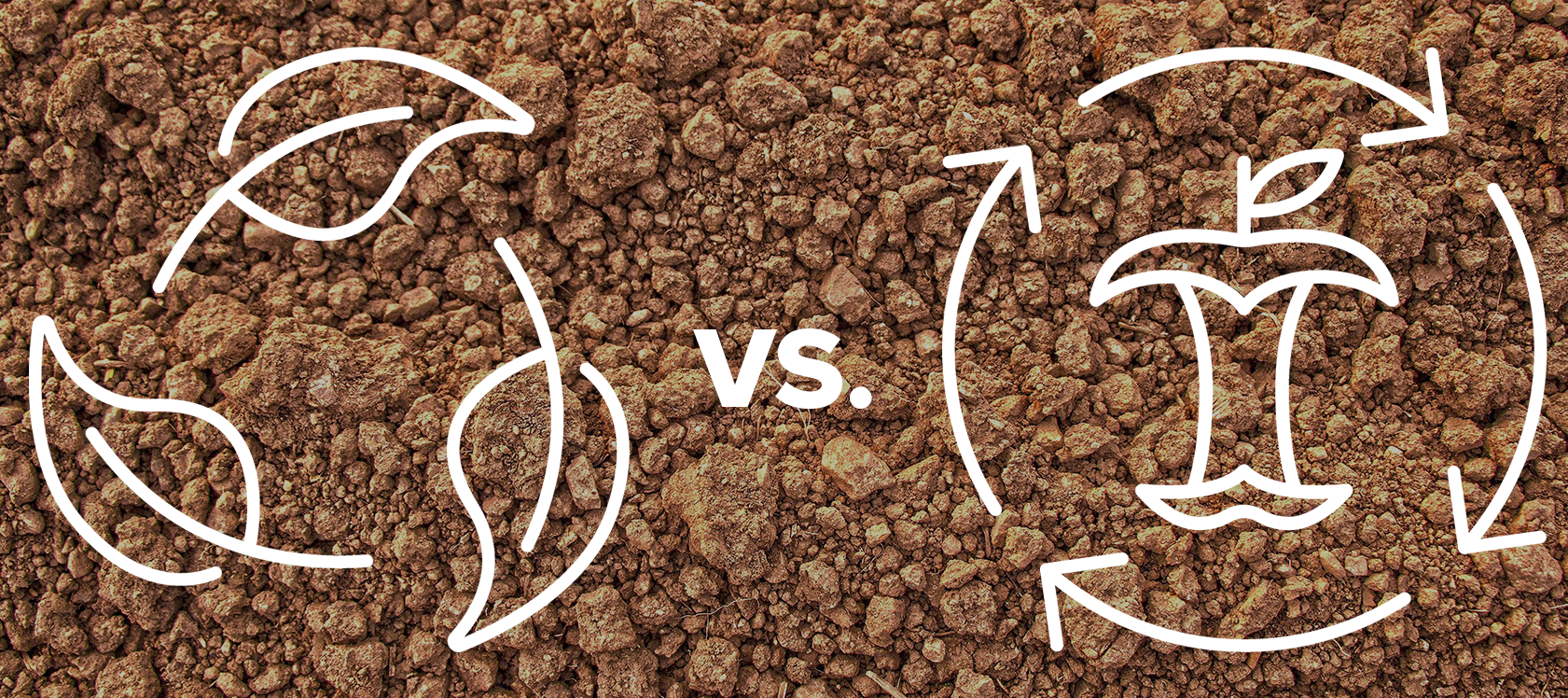Glove Intelligent Assistant
02.13.2024

You might have seen products labeled as biodegradable versus compostable on various products containing plastic or fiber products. As mentioned throughout these blog articles, many companies are trying to cater to consumers who are looking to purchase sustainable products to help combat climate change with what they can do as individuals, often willing to even pay a premium for sustainable products. Thus, they look to label their products with green labels, most commonly as biodegradable, compostable, or oxo-degradable.
In 1992, the Federal Trade Commission (FTC) established its Guides for the Use of Environmental Marketing Claims, also known as the “Green Guides,” to provide commercial brands and manufacturers with specific guidance on acceptable environmental benefit claims advertised on their products. The FTC Act allows the commission to exercise the power to bring law enforcement actions against brands making false or misleading environmental claims. Many states, such as California, additionally have statutes that a company must provide substantiated scientific proof of any claims that their product contributes to or contains the environmental benefits its label or advertisement suggests. Now that there’s a bit more context for these labels, let’s get down to what they actually mean.
![]()
The term, biodegradable, is an umbrella term used for all bioplastics that can be converted into water, carbon dioxide, or organic material at the end of its life cycle over a set amount of time with the introduction of microorganisms to help break down the material. However, all materials will eventually biodegrade when given enough time or the right environment. Usually companies will provide more context or specific conditions in which their product will biodegrade. This gives us the term, compostable.
![]()
Compostable products are those which have been assessed and certified by a third party to follow international standards such as the ASTM D6400 (American Society for Testing and Materials) testing standard, the EN 13432 (European Standard) testing standard, or the ISO 17088 (International Standards Organization) testing standard, to have sufficiently gone through decomposition in an industrial composting facility environment.
Materials that have been assessed and meet the ASTM D6400, EN 13432, or ISO 17088 standards must at least disintegrate during composting within 12 weeks and decompose by at least 90% within 180 days in a municipal or industrial composting facility. The process is usually aerobic degradation (in the presence of oxygen), in a heated and moist environment. The residual waste can then become valuable compost, a combination of organic matter and water. The testing standards ensure that there is no residual toxic waste from the process as well.
Unless otherwise stated, products labeled as compostable must be disposed of in a designated municipal composting facility, and cannot be composted at home. Many certified compostable materials require higher temperatures that only industrial settings can reach to biodegrade quickly enough, or at all in some cases. All compostable products are biodegradable but not all biodegradable products can be composted or compostable. This is a very distinct and important aspect to take notice of when disposing waste. A recent report from BPI and Closed Loop Partners’ Composting Consortium revealed that approximately 49% of survey respondents struggled to differentiate between “biodegradable” and “compostable.”
Due to this concern, states are strengthening laws that will restrict the marketing of products as biodegradable; and may require biodegradable claims only in conjunction with the proven ability to be compostable. These legislation changes are not just happening domestically in the US, but internationally. The European Union is set to enforce stringent laws that ban businesses from using terms like ‘eco’ and ‘climate neutral’ without substantiated proof by 2026. While we take the time to educate our customers, we will move towards labeling our products as “Not Compostable.”